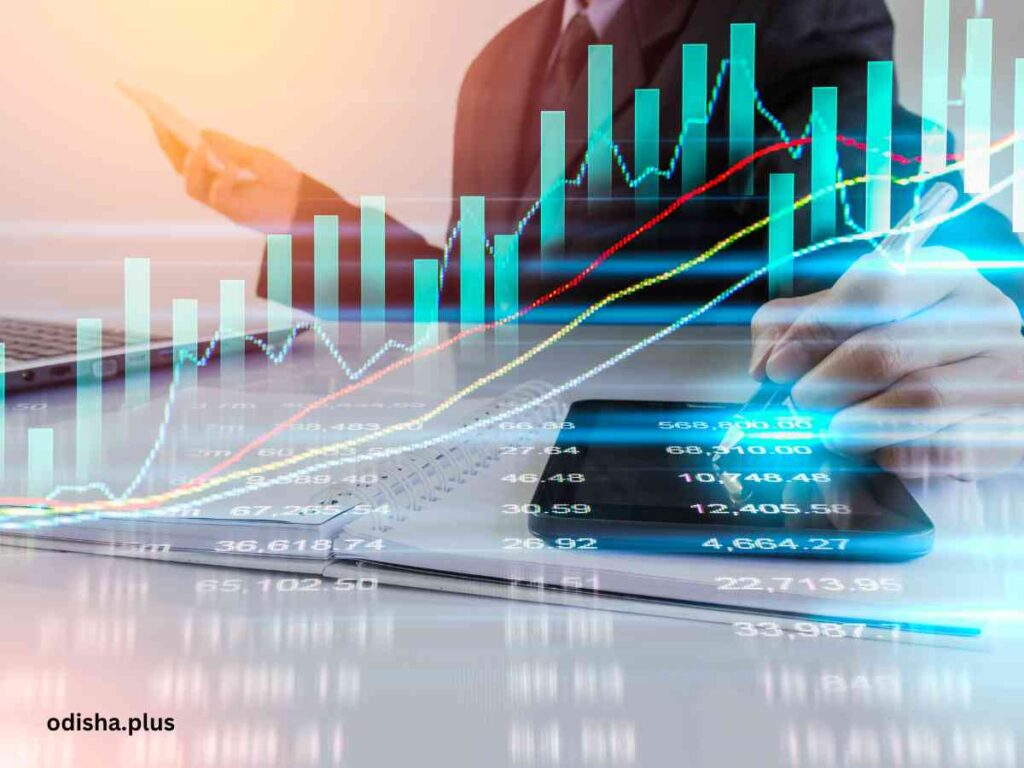The digital economy is predicted to expand rapidly, providing new opportunities for innovation & boosting the economy
Suresh Chandra Sarangi

If one visits a railway platform, or an airport, where thousands wait for a train, or hundreds wait for a plane, one will view each one’s hand. A mobile phone and you will feel that all of them are damn busy. Even some of them are busy with a computer, detached from the outside world. The time they are consuming is either for office work or recreation. All of these people live in the real world, but work in a virtual world. This real and virtual became more manifest some 50 years before when the microprocessor was invented.
The microprocessor helped each one to read a book, see a video, glance through a movie, listen to a streaming sports event, or chat, signifying the complete arrival of the digital age. From Australia to Japan, from New York to sub-Saharan Africa, the poorest of the poor in India or for that matter, any emerging economy today, remain connected to today’s digital economy. The transformative power of this digital economy is simply incredible. The smartphone today is your bridge to connect the world of work, music, drama, sports, etc, at a speed and accuracy never heard before. The speed is unbelievable. The world appears to be more virtual than real.
E-Commerce Today
Since Bill Gates wrote his book ‘The Road Ahead’ on the computer, there have been infinitesimal changes. His second book on the internet, ‘Business at the Speed of Thought’ is a classic example of e-commerce today. Social media is more aggressive in bringing changes, in entertainment, creating public opinion, and changing the contours of life. The digital age stares at us each moment. Let us think of the economy. We were hunter-gatherers, next came agriculture, and then the Industrial Revolution, with the rise of capitalism.
Then in the 21st century, the focus shifted to services. Agriculture gave us the landlord, feudal chief, and simple economy. Industry gave us capitalism, mass production, and democracy. The 21st century witnesses the digital economy, which means almost everything leaving aside agriculture and industry is done virtually. The means of production, distribution, and exchange is done through computers and the Internet. The digital economy is worth millions of dollars and still growing at an accelerated speed.
We are searching for products as well as services, day in and day out, making price comparisons, quality comparisons, and availability. We come to know about everything, health services, insurance products and services, air or rail ticketing, by saving our money and time. It is estimated that internet users in the USA almost spend 8 hours a day online, on various activities like video conferences, shopping, and watching movies.
With the pandemic threatening our existence that altered everything, the culture of work from home invaded the planet and the office became a dead place. There was no traffic congestion, no expenses on patrols, and no accidents. OTT Platform suddenly appeared from nowhere, with streaming music, video, and movies and life changed spectacularly. The very definition of work, leisure, and entertainment has completely undergone a metamorphic change.
World is Flat
Now, we live in a world, that is more integrated than ever before and one can purchase and then a product or device sitting in the comforts of his home and office and that is why we say the World is flat. Thomas L. Friedman, the great writer and political commentator, in a 2005 book, named ‘The World Is Flat’ recounts a journey to Bangalore, India, when he realized that globalization has become a force to be reckoned with, changing scores of economic concepts and the digital world has triggered that process. In his opinion, the flattening is a product of convergence of computers with fibre optics and the rise of workflow software.
The advent of the digital age has created a level playing field where countries, companies, and individuals want to remain competitive and create an integrated global market. Friedman has termed this period as globalization 3.0. He thought that in the 21st-century digital world, global supply chains become more complex and more integrated. Starting from Netscape workflow software, uploading, outsourcing, off-shoring, supply chaining, in-sourcing, and informing make the digital world more relevant and more sought after.
No doubt it is making a new wave, as initially it was believed, a labor market disruption. Politicians used to say computers were never in India and the same political party distributed computers in their electioneering campaign. A 2023 study says that nearly 20% of US workers belonging to high-income groups are jobless. But it is increasingly seen and believed that computers, as well as the digital economy, have created more jobs than before and work today has a new definition more we need the fancy buildings, the dust-ridden files or the staff required to fetch same.
The simple computer in that sense is enough and more than thousands of paper files. Cash is becoming outdated and gradually being thrown into the museum of antiquities and the paperless world and the digital economy, only ruling the roost. In a country like India, the small economy of hawkers, vegetable vendors, or other vendors is run by a digital economy. Investment banking, stock trading opening an account in a bank, or doing transactions are now done 24*7, from the comforts of the home.
The digital economy is not only shaping the world of finance but also transforming it. The digital age transcends time and space. The exponential growth of e-commerce, digital signature, encryption, blockchain, B2C, and business-to-consumer has been possible due to the online platform. One of the benefits of e-commerce is the low-cost structure. That helps the rise of the consumer class and the participation of more traders with their tailor-made products.
E-commerce has changed the concept of the marketplace with B2B commerce. This helps the business to grow, profit to accumulate, and help the growth of a faster supply chain. People sitting in the comforts of their homes can purchase forex from the Japanese market and sell it to the Singapore market and enjoy the exchange arbitrage opportunities.
Gig Economy
The gig economy is a byproduct of the digital economy. The potential of the digital economy is huge. However, one criticism of the digital economy is that it has accentuated inequality in the world. The difference between low pay and high pay is astronomical. The human touch in administration is lost. Intellectual and physical capital has displaced labor.
Despite all these transformations, the hackers make the lives of ordinary as well as extraordinary people miserable, amassing millions in seconds and making people poor within seconds by exploiting these gullible people. That is a potential threat to the digital economy and the netizens.
However, millions see an opportunity in a digital economy. ‘The Future is Better Than You Think’ is a book by Peter Diamandis and Steven Kotler. Wherein book Bold speaks of How to go big, create wealth, and impact the world by seizing the opportunities available is well expressed. GDP as well as per capita income are growing in a digital world in a world beset with no fewer problems.
Bitcoins, blockchain, and cryptocurrencies are important developments in user-to-user payment systems and have caught the imagination of the people. Robots and Artificial intelligence would make change so powerful. The latest DeepSeek platform freaking out AI is transformational.
The future only knows what the next convergence. The new world economy is anybody’s guess or out of imagination. If Charles Babbage, founder of computer, will tear in his grave, he may not believe the world he once visited. The new exponential technology is here to stay and Issac Asimov would have been happier to write the present testament.
(The writer is a former General Manager of Bank of India and currently a visiting professor at KIIT School of Management. Views expressed are personal.)



























